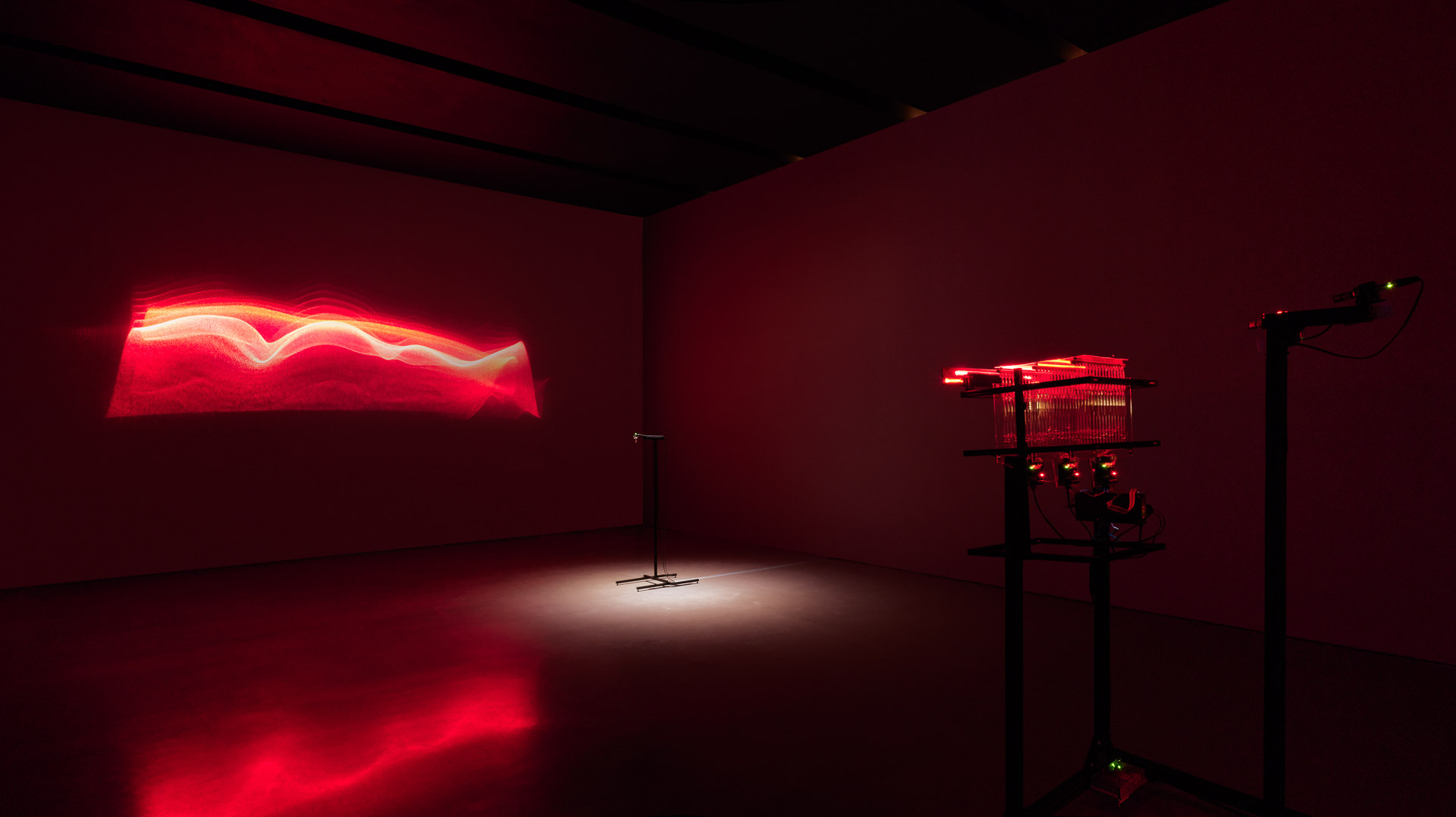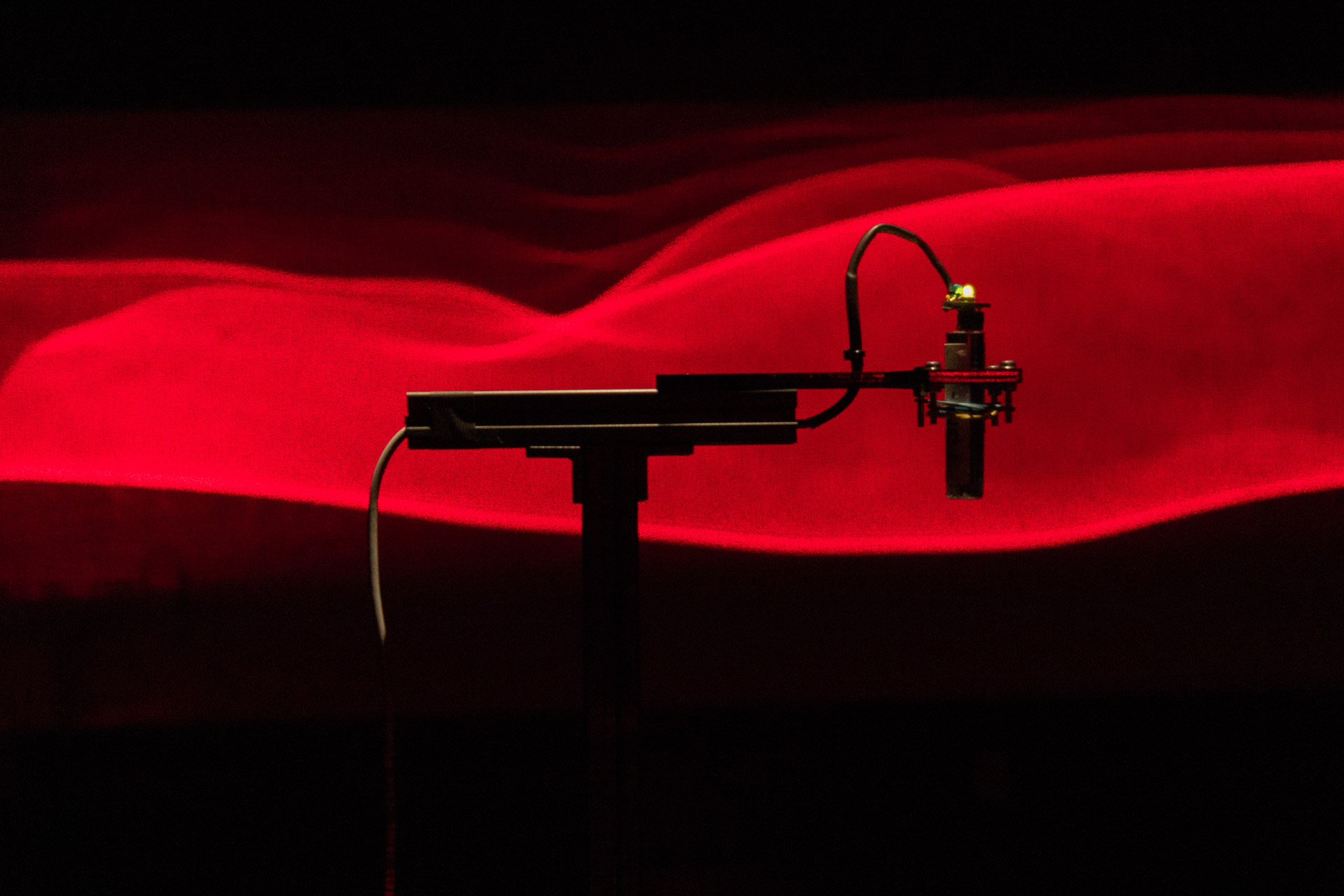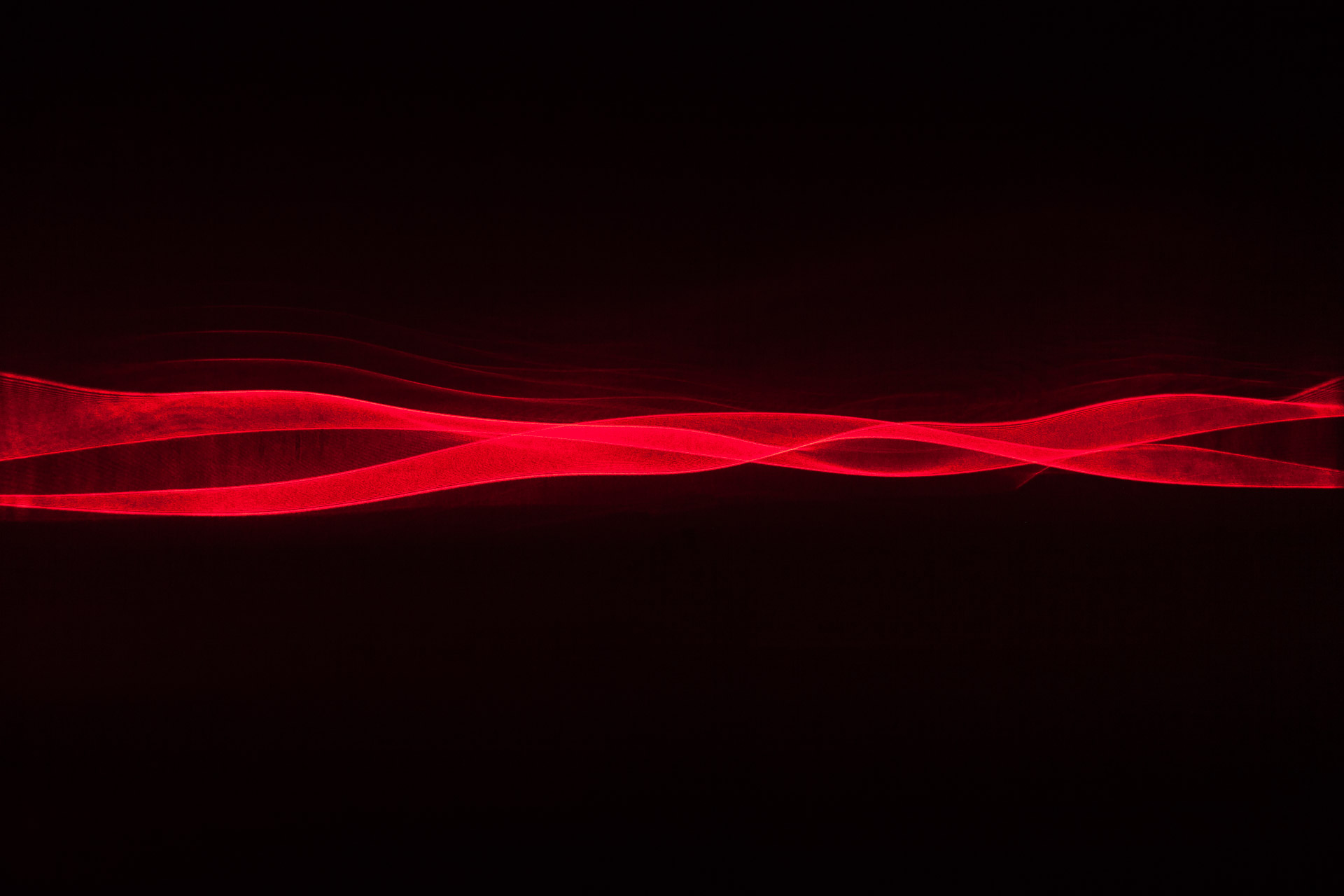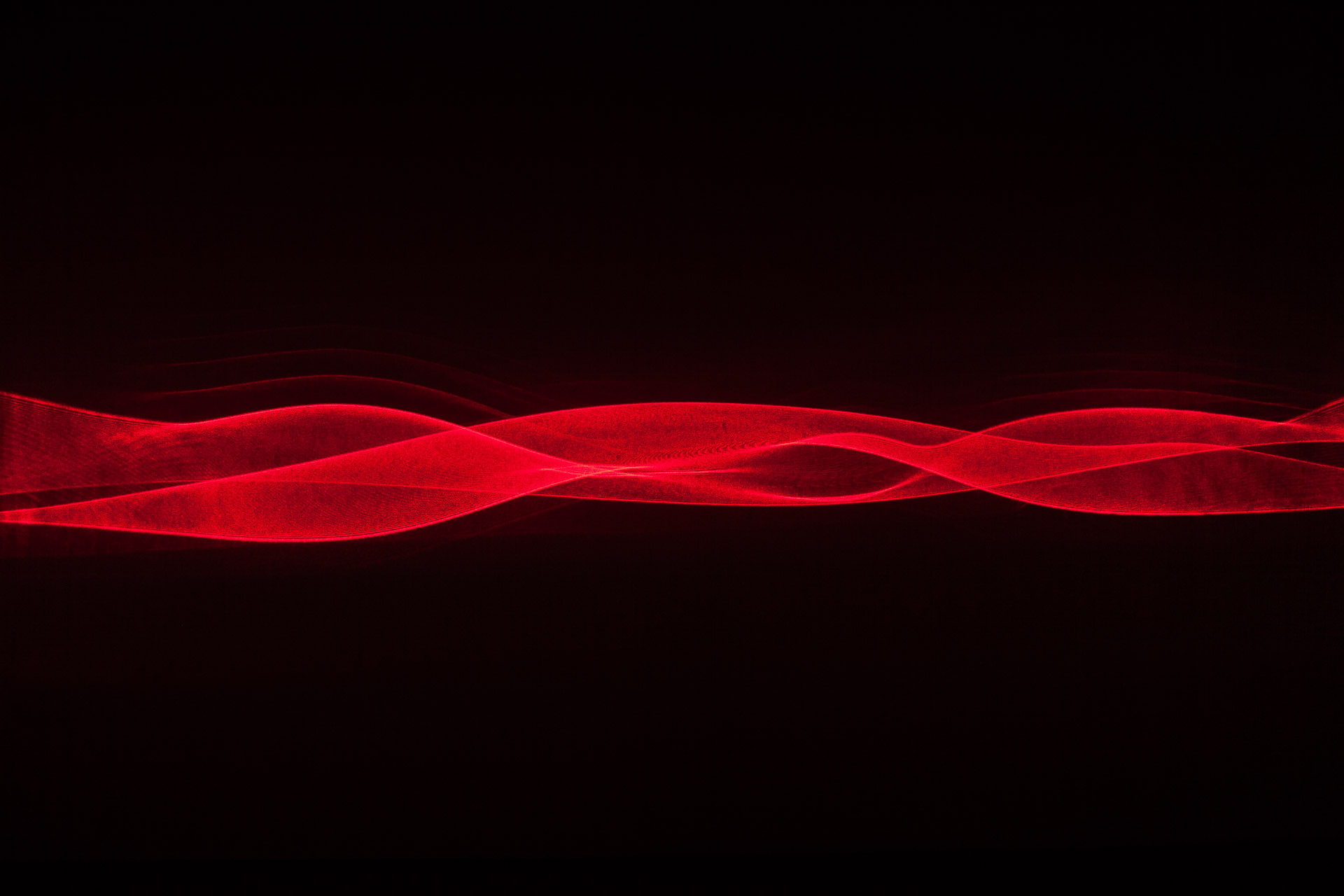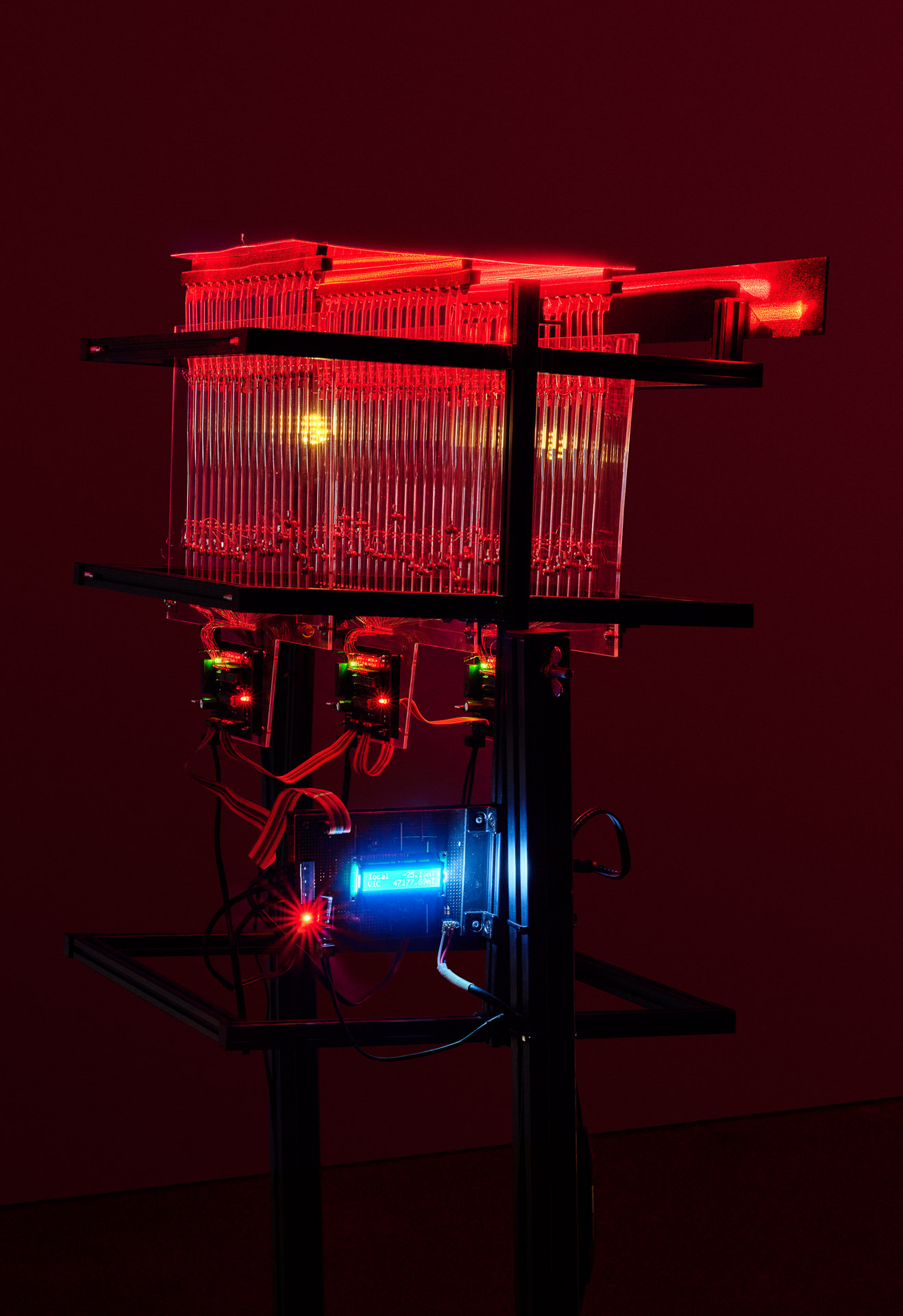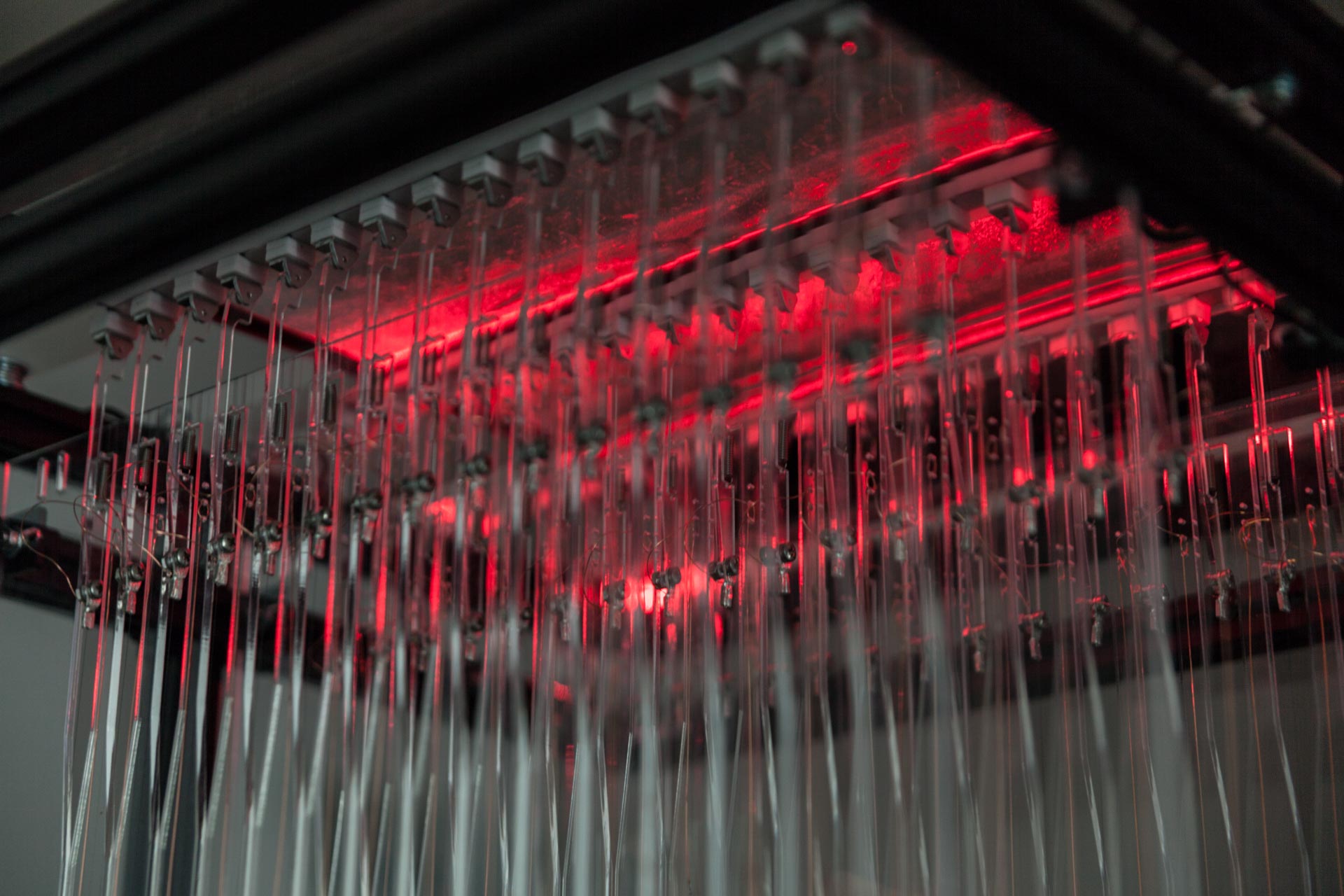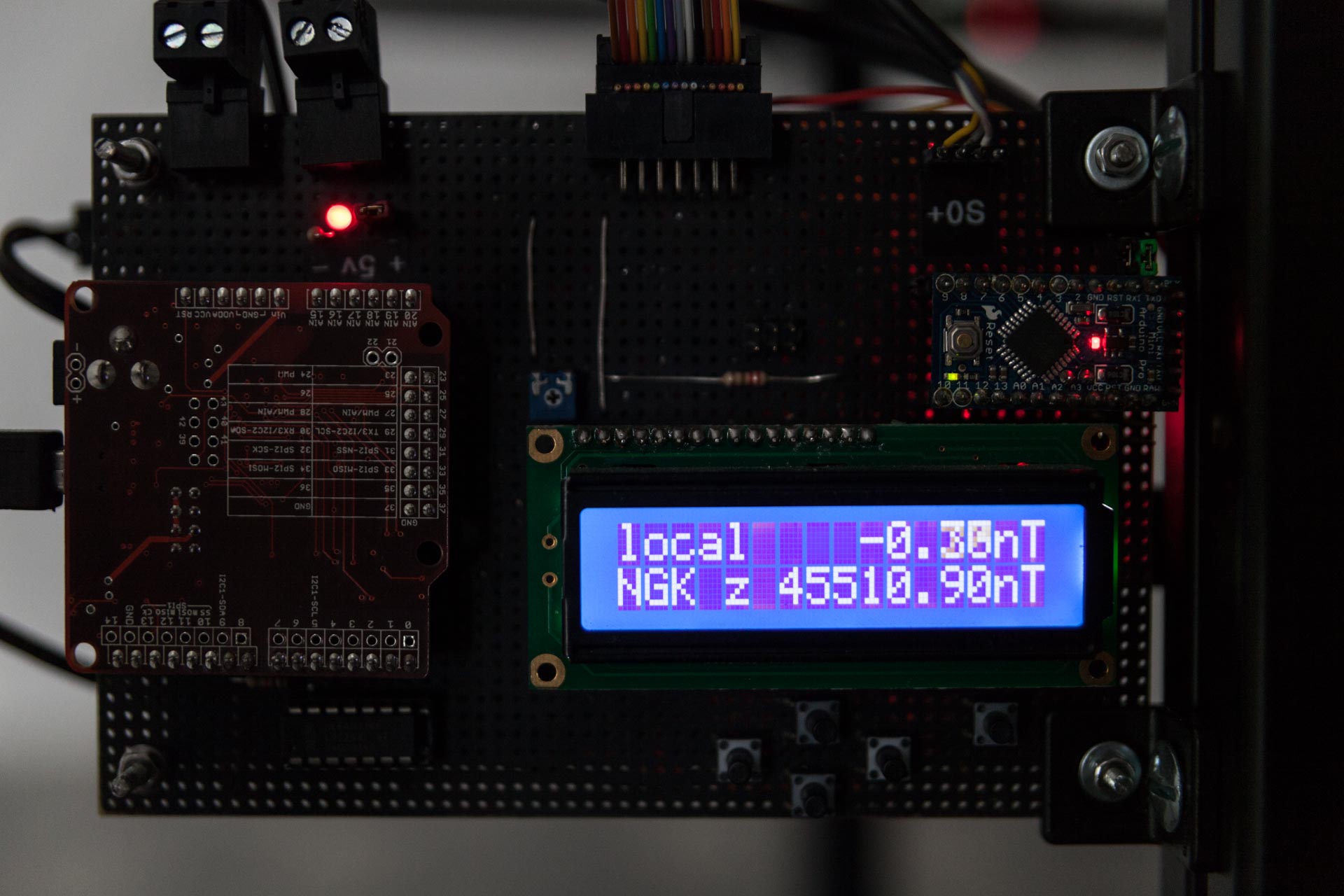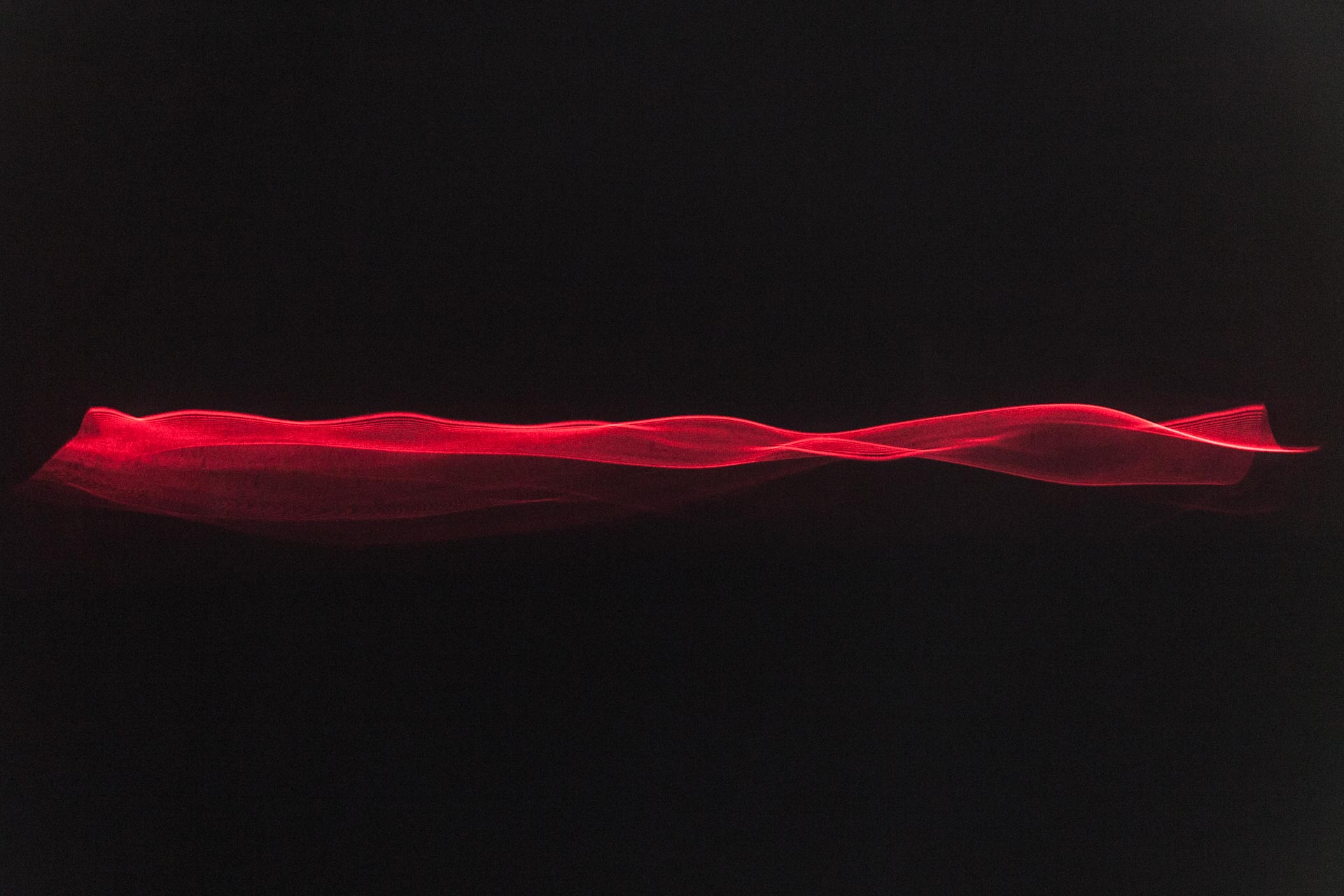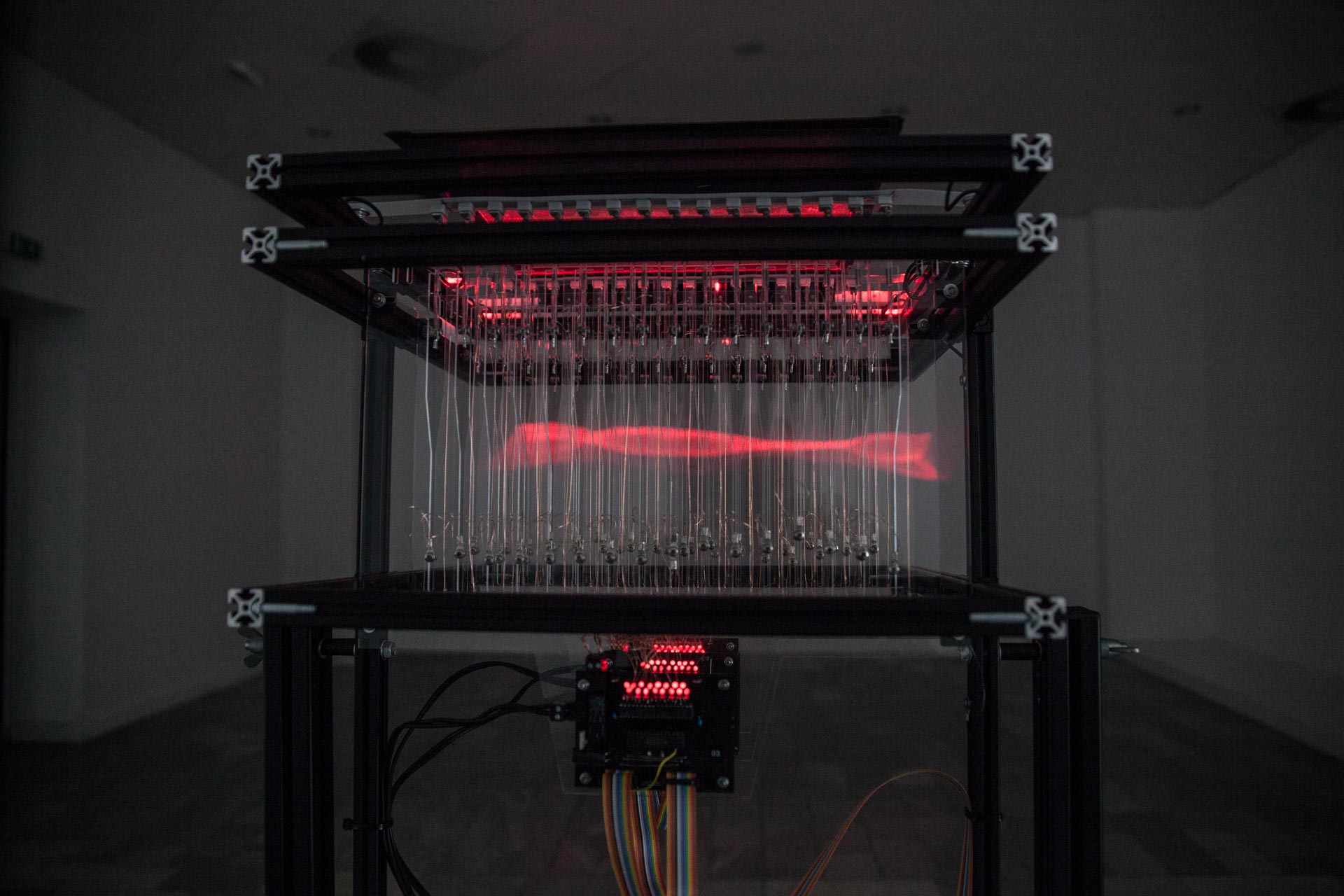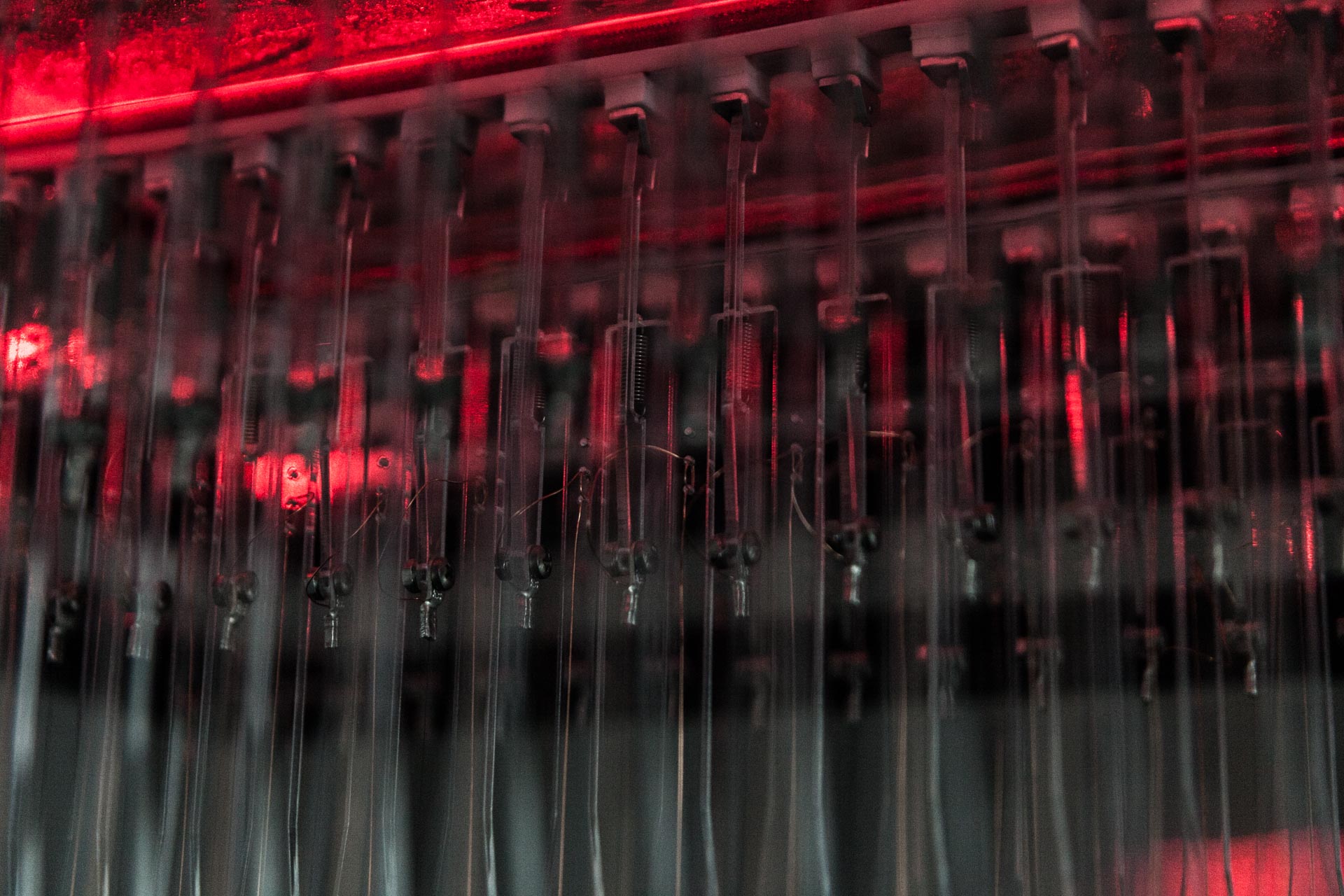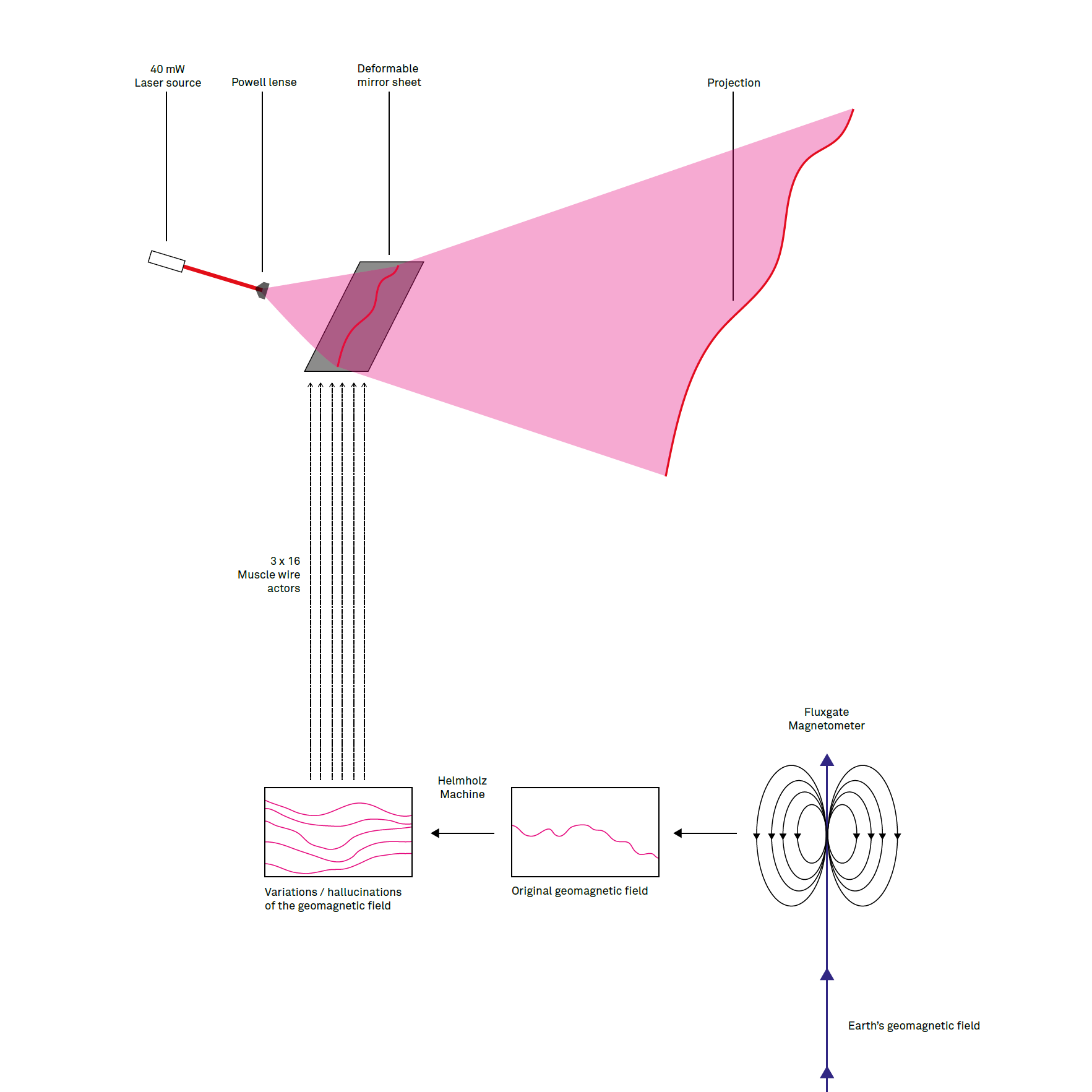“When one understands the causes, all vanished images can easily be found again in the brain through the impression of the cause. This is the true art of memory” — Cogitationes privatae, Rene Descartes
Mirage is a projection apparatus that makes use of principles from optics and artificial neural network research. It generates a synthesized landscape based on its perception through a fluxgate magnetometer (Förster Sonde). The work registers the magnetic field of the earth, which is dependent on the earth’s geodynamo and its interactions with the activity of the sun, and feeds it into an unsupervised learning algorithm for analysis. At the same time, the algorithm, inspired by the principle of a Helmholtz machine, dreams variations of the previously analyzed signal.
Forty-eight Nitinol wires help to transfer these variations into a two-dimensional, physical matrix—a thin, mirrored surface. The mirrored surface changes in accordance with the state of the system. A thin laser line is pointed at an acute angle at the mirrored surface to generate a deep, landscape-like projection on the wall. Through the constantly shifting signals, the projection is like a way to subliminally wander through a landscape.
Geoff Hinton, one of the leading researchers in the field of artificial neural networks and deep learning, joined Google in 2013 to support them on various products that use AI and learning algorithms. He introduced back-propagation algorithms for training multi-layered neural networks. One of his contributions to the field of unsupervised learning algorithms is the so-called Helmholtz machine, a machine that uses the principle of a wake-sleep algorithm to consolidate its neural network. The algorithm is trained during the wake phase by its sensory input. In the sleep phase, it cuts off its sensory input and feeds the network backward with random patterns and generates versions of its previously perceived images of the world onto its input layer (retina).
I speculate that the computers in the enormous Google data centers cut off their perception (search queries, user behavior, speech recognition, image data) once a day and start to sleep. What do their dreams look like? (Ralf Baecker, 2014)
Aluminum profile, custom electronics, Nitinol wires, line laser module, fluxgate magnetometer
Credits:
Produced with support of LEAP Gallery, Berlin
Exhibitions/Performances:
Topologies of the Real: CAFAM Techne Triennial
2023-05-04 - 2023-06-30
Shenzhen Museum of Contemporary Art and Urban Planning, Shenzhen CN
Indivisible
2022-05-04 - 2022-07-30
New Media Gallery, Vancouver CA
May The Others Live in Me
2021-07-22 - 2021-10-10
Laboratoria / New Tretjakow Galerie, Moscow RU
A new State of the Living
2018-11-28 - 2019-02-17
PERMM Museum of Contemporary Art, Perm RU
The International Digital Art Biennial (BIAN/ELEKTRA)
2018-05-29 - 2018-08-05
Arsenal Contemporary Art, Montreal CA
Datumsoria. The Return of the Real
2017-09-09 - 2018-03-18
Zentrum für Kunst und Medien (ZKM), Karlsruhe DE
unREAL. The Algorithmic Present
2017-06-08 - 2017-08-20
Haus der elektronischen Künste (HeK), Basel CHE
The Paradox of Knowing Universals (solo)
2016-05-13 - 2016-07-03
Kasseler Kunstverein, Kassel DE
Tektonics / ACT Festival
2015-11-25 - 2015-11-28
ACT Center, Asia Culture Center (ACC), Gwangju KR
CyberArts 2015, Prix Ars Electronica Exhibition
2015-09-03 - 2015-09-13
OK Center, Linz AT
Obsessive Sensing
2014-04-04 - 2014-04-25
LEAP, Berlin DE
